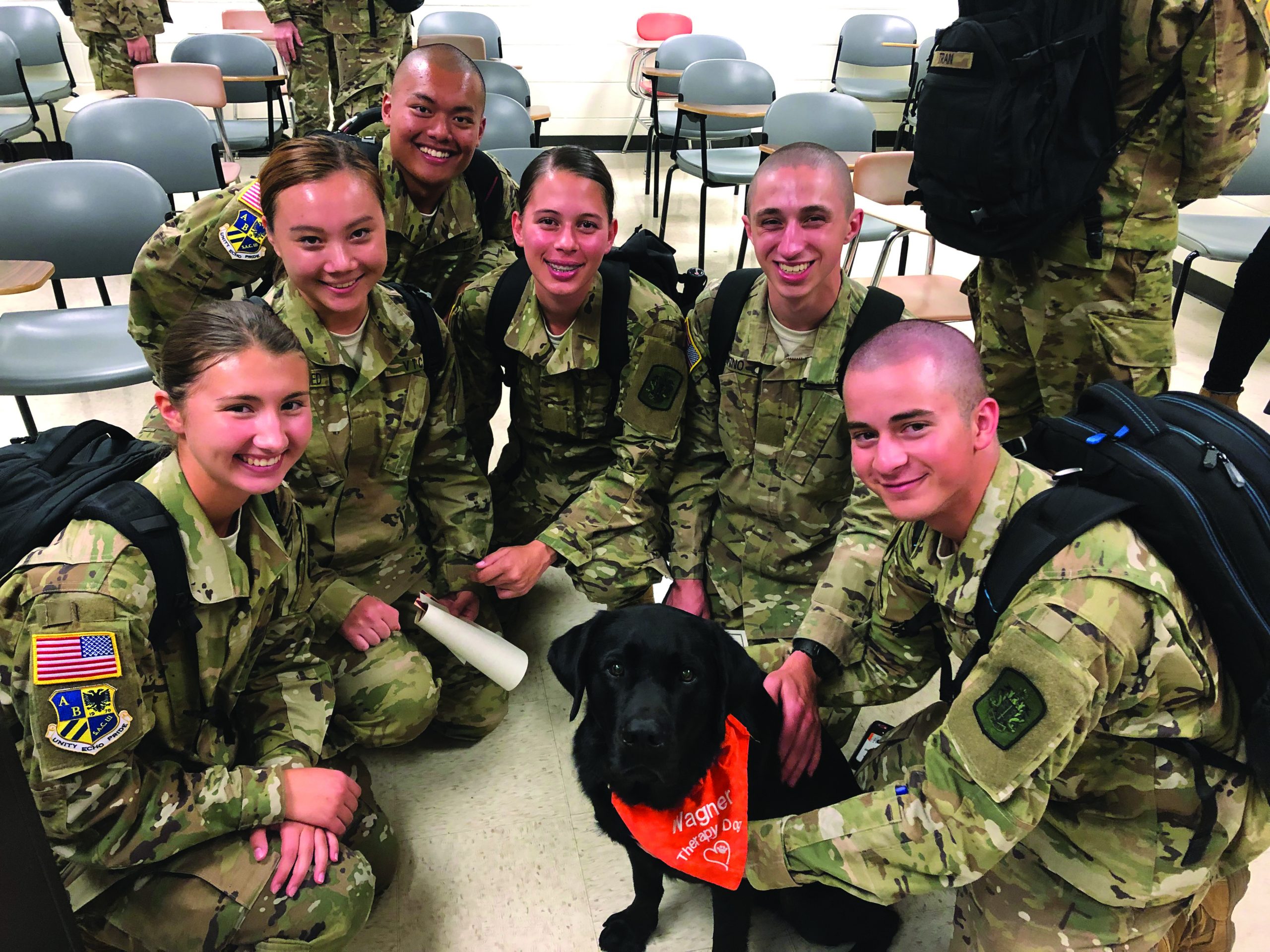by Mary Schwager
I have a confession to make: My Lab had a weight problem.
There was a time she was fit and trim. When she was first flown to New England, as a rescue dog from Puerto Rico, she was skinny and looked like she needed a hot meal. My goal was to show her all the luxuries of having a loving home, including good food.

But somewhere between the day I picked her up from the shelter in 2012 as a one-year-old dog…and 2018, the weight crept on. She went from 70 pounds to 93 pounds.
Oh, in between those years we tried to keep the weight off. First, our household cut back on her human food consumption.
Then we curtailed those summer trips to the ice cream stand for vanilla soft serve, which she would begrudgingly share with her adopted brother.
We’d say, “No Daisy, no matter how longingly you look at us with those determined Lab eyes, no matter how you try to convince us you’re starving, no, you cannot eat this.”
As you know, it’s not easy to turn down a Lab with a hungry face! But we resisted. Even when she did her self-taught, very best begging pose.

But that didn’t help. The scale kept rising.
Then, at the vet’s recommendation, we cut back the amount of dog food she ate. Nope, that didn’t work either.
The vet would then suggest, “How about more exercise?”
We’d say she hikes. She goes on daily walks, we bring her with us almost everywhere. She swims in lakes and ponds. And when it’s too cold out, she swims indoors.
We were so puzzled. She ate the exact same amount of food, and exercised the same amount as her brother, but she kept getting fatter.
I consider myself a fantastic pet owner, yet my beloved Daisy joined the growing ranks of obese pets across the country.
In fact, new stats just out, show for the seventh-straight year in a row pudgy pets are on the rise. Nationwide reported, in its most recent count, 20 percent of all pet insurance claims the company received were related to pet obesity. The company told us its data for Labs is exactly the same as the data for all dogs: Some are pretty fat.
 If you know the breed, you probably know Labs are known for packing on few pounds during their middle age years.
If you know the breed, you probably know Labs are known for packing on few pounds during their middle age years.
Veterinarian Lori Teller, who is on the Board of Directors for the American Veterinary Medical Association, told us, “Labrador retrievers are greatly predisposed to being overweight and even to obesity. There are many reasons for this,” she said. “Some, just like humans, gain weight because of sedentary lifestyles—not enough exercise and too much food. But even when humans control the amount of food their Labs take in, some dogs continue to gain weight and are constantly hungry.”
So, I’m not the only one with a Lab who was chronically hungry, yet was 18 pounds overweight. But here’s something Lab owners may not know, and you may joke about this, but it really is in their genes.
“Labradors and flat-coated retrievers are the only two breeds thus far identified with a genetic mutation that predisposes them to be overly food motivated and to have an imbalance in their ability to maintain adequate energy levels,” Teller said. “This genetic mutation also increases the amount of adipose tissue in their bodies and their body weight.”
 Another condition Labs are also more predisposed to, hypothyroidism. “While its role in weight gain is not nearly as impressive as that of the genetic mutation, it can still be enough to trigger excess pounds and the consequences of carrying those around,” Teller said.
Another condition Labs are also more predisposed to, hypothyroidism. “While its role in weight gain is not nearly as impressive as that of the genetic mutation, it can still be enough to trigger excess pounds and the consequences of carrying those around,” Teller said.
A simple blood test actually revealed Daisy’s thyroid levels were off. The vet prescribed a supplement and we left the office hoping she’d shed some weight. Sadly, it also didn’t help much.
The vet started to get pretty worried when Daisy hit 93 pounds.
We took drastic measures: A special prescription diet food and she can only eat two cups a day. I tried to cover Daisy’s ears when the vet told us the plan. It needed to happen. This dog had to lose weight.
Obesity is downright dangerous for dogs. Nationwide’s survey found the most common overweight pooch-related conditions ranged from arthritis to diabetes, even heart failure.
“Excess weight affects major organs and can exacerbate many conditions, resulting in a decreased quality of life and poorer health for our pets, and increased costs to clients as they strive to keep their pets comfortable and manage their health problems,” Teller said.
 We certainly didn’t want Daisy’s health to be impacted, so we followed the strict diet. Within a month she began to shed her pounds. Her vet was overjoyed. It took about two months, and Daisy’s weight loss journey came to a close, she hit her goal weight: A sleek 75 pounds.
We certainly didn’t want Daisy’s health to be impacted, so we followed the strict diet. Within a month she began to shed her pounds. Her vet was overjoyed. It took about two months, and Daisy’s weight loss journey came to a close, she hit her goal weight: A sleek 75 pounds.
Now Daisy is spunkier. She runs around more, she is more playful, and besides that “less food” part, she seems happier and healthier. Weighing less also means less stress on her joints, which can cause arthritis pain… another Lab trait.
My advice to you if you have a fat Lab: Make losing weight their New Year’s resolution. They’ll be happier and healthier in the long run, and fewer health problems means you’ll spend less on vet bills.
AUTHOR
Mary Schwager, aka WatchdogMary is a TV and print journalist now watchdogging for animals. Honored to have won 14 Emmy, 7 Edward R. Murrow and Associated Press awards for investigative reporting & writing. She loves tips, send your story ideas to www.watchdogmary.com.








